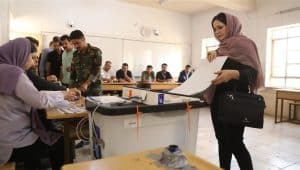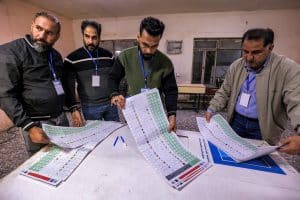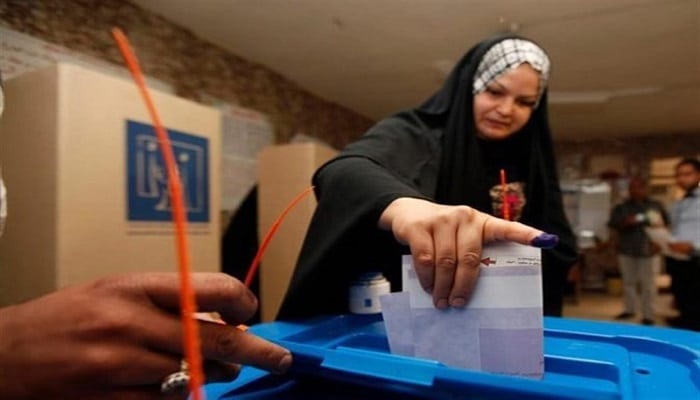PNN – Over the past 24 hours, three new electoral coalitions have announced their existence in Iraq’s Shiite home, and the campaign of the most important coalition headed by the current Prime Minister has also begun its activities from Karbala to seriously light the fire for the fifth parliamentary elections of the new Iraq.
According to the report of Pakistan News Network, over the past 24 hours, the Iraqi election campaign has heated up with the announcement of new coalitions within the country’s Shiite community. The Reconstruction and Development Coalition, headed by the country’s current Prime Minister, Mohammed Shia al-Sudani, have also begun its campaign in the holy city of Karbala.
The Reconstruction and Development Alliance, which experts believe is the most important current electoral alliance in Iraq, consists of 7 political groups with the presence of well-known political figures such as former Prime Minister Iyad Allawi and Falih Fayyad, commander of the Popular Mobilization Forces, which has a chance of winning parliamentary seats in Sunni areas as well as Shiite areas.
In addition, last night, the Al-Sadiqoon coalition, which is actually the political wing of the Asaib Ahl al-Haq group and is commanded by Qais Khazali, also unveiled its election campaign.
The Wisdom Movement, led by Ammar Hakim, also formed an alliance with the Nasr Movement, led by Haider al-Abadi, and chose the name of the “National State Forces” coalition (Talaaf Qawi al-Dawla al-Wataniyyah).

Meanwhile, it is important to note that Haider al-Abadi, like Muqtada al-Sadr, had announced two months ago that he would boycott the elections, but the return of the coalition led by him to the competition indicates that he has reconsidered his initial decision.
The Government of Law coalition, which emerged from the Dawa Party, which is considered one of the classic political forces in Iraq’s Shiite community and has a significant voter base in the southern and central provinces of Iraq, entered the election campaign under the leadership of Nouri al-Maliki.
Of course, there was an expectation that the Government of Law and Al-Sadiqun would reach a coalition before the elections and enter the electoral competition on a single list, but after Al-Sadiqun unveiled its coalition, it became clear that the negotiations between Qais Khazali and Nouri Al-Maliki were not fruitful during this period.
The Badr political wing led by Hadi al-Amiri, like al-Sadiqun and the Government of Law, has entered the electoral competition without an alliance with other prominent Shiite groups, and it is likely that he, like other prominent political leaders in the Shiite House, will wait until the number of parliamentary seats is determined to return to the negotiating table.
Of course, the absence of the Sadrist movement as one of the most important political actors in the Shiite community, especially in the southern provinces and Basra, continues to have a tangible impact on the election process.
Of course, in recent days, reports have been published of protest rallies in the two provinces of Basra and Nasiriyah, during which Sadr supporters gathered to protest infrastructure and political problems.
These gatherings could possibly be a sign that although Muqtada al-Sadr has decided to significantly reduce his political involvement due to what he calls the fight against corruption, he is still committed to playing a social role and participating in “low-level politics” equations.

The Kurdish party’s situation, as before, is based on the two pillars of the Democratic Party and the Patriotic Union, and these two will enter the field as the main players.
The situation in the Sunni heartland is the opposite of the Shiite heartland, where the Taqdam Party, headed by Mohammad Halbousi, and the Sayyada Party, headed by Khamis Khanjar, as the two main factions of Iraqi Sunnis, formed a coalition called “Saghourna” last month.
This pre-election coalition reflects the Sunni parties’ reluctance to form a coherent opposition to the next government and effectively prevented the formation of pre-election, cross-ethnic coalitions in Iraq. Some had hoped that this year coalitions would be formed beyond ethnic and racial boundaries, but these boundaries are still alive.

